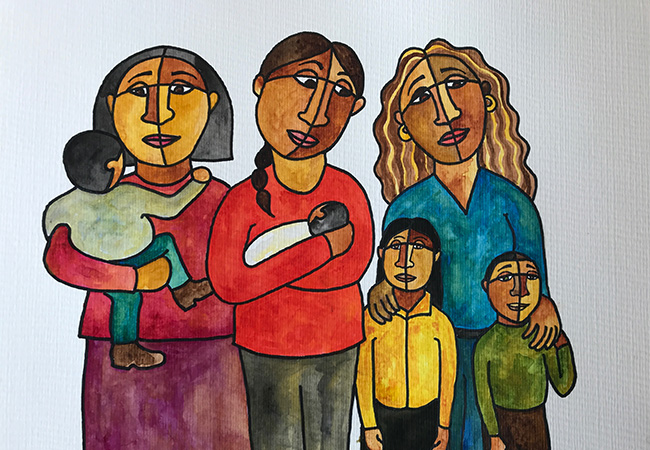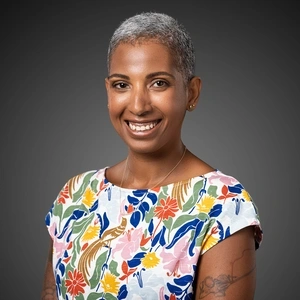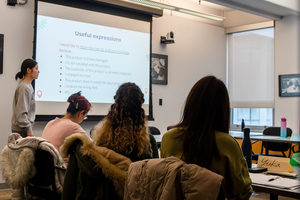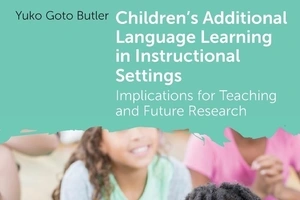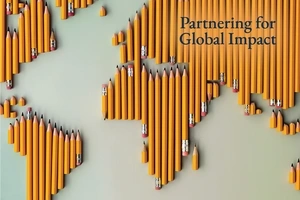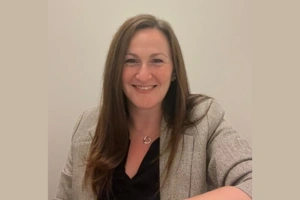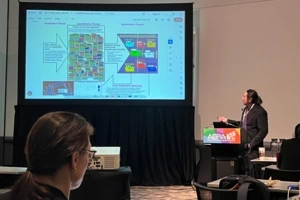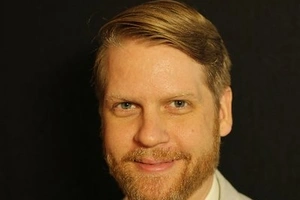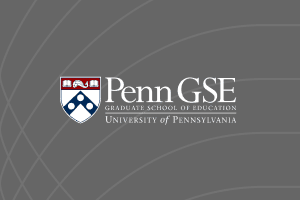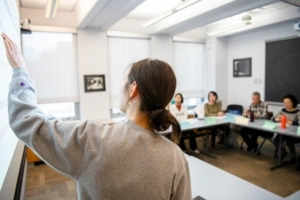Faculty Expert
Assistant Professor María Cioè-Peña joined the internationally renowned Educational Linguistics Division at Penn GSE to ensure that bilingual children with dis/abilities get the support they need to thrive. These children are often labeled as “disabled” and “English learners” and then shunted into special education programs, while gifted and talented programs serve mostly privileged and enabled white students. Her work pushes beyond an either-or discussion of which child belongs in one program versus the other. Instead, she wants to find a model where all learners get what they need without being labeled.
A former bilingual special education teacher, Cioè-Peña found that racialized, minoritized, bilingual, immigrant, and differently enabled children and their families have a hard time accessing multilingual and inclusive learning spaces within public schools. She describes her research as “deeply rooted in political economy, raciolinguistic perspectives, and critical dis/ability awareness within schools and families.”
Cioè-Peña is a Black, neurodiverse Latina immigrant who earned her Ph.D. from The Graduate Center – City University of New York in Urban Education. As someone whose diagnosis was formalized as “autism spectrum disorder” at age 35, she benefited from growing up “without knowing of or having labels,” and warns that “labels can be presented as support, yet serve as a proxy for ableism/racism.” Her own disability manifested itself in ways that made her better in school, she says. She was quiet and focused and willing to take deep dives into things that interested her. If her disability had manifested another way, say in behavior considered disruptive in traditional classrooms, she suspects that she may have had a far harder time getting the support she needed.
Educational policies, school systems, and educators can serve as gatekeepers that provide or prevent learners from accessing what they need. Cioè-Peña says, “I’m really interested in thinking about systemic and historical structures that determine who belongs versus who does not belong. A lot of children – and families by extension – lose out on services or opt out of services because they've encountered a gatekeeper who didn't feel welcoming.”
In the US, an individualized educational plan (IEP) is developed for children who need special services. The IEP is drawn up by representatives of the school system and the child’s teachers and parents. Sometimes, the child’s challenges are easy to identify, medicalize, and diagnose, like blindness or deafness. But other diagnoses and the labels they carry are far more subjective and, Cioè-Peña says, “can be dangerous.” She discusses how interventions intended to help can go awry in her 2021 book, (M)othering Labeled Children: Bilingualism and Disability in the Lives of Latinx Mothers, in which she studied mothers in New York City whose children are dually classified as English learners and as having a disability. The book, her first, recently received the 2023 American Association for Applied Linguistics First Book Award. It is available for free in Spanish.
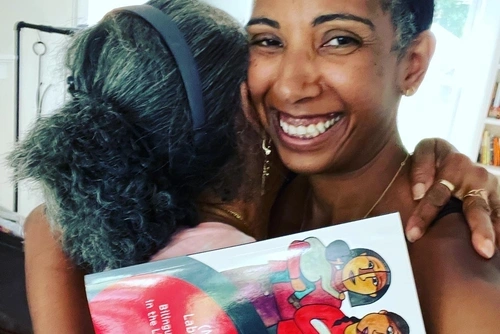
“What I ended up surfacing is what happens to a lot of marginalized families,” she says about the study covered in the book. A baby starts babbling, and in time a pediatrician or educator notices that "their speech is not totally perfect, and then the mom thinks to herself 'Oh, no, something's wrong with my child, and I didn't notice!’ So then it gets picked up by the school, that says ‘We're gonna help you,’ and the mom says, 'Please give me all of the services.’ And what happens? They get lots of services in English, even if the moms don't speak English. And now you've got a communication barrier that's been introduced into the household.”
The book goes on to describe the outcomes for children labeled as English learners with disabilities. “You fast forward and the kid is in third grade, and the mom says, 'They talk fine now. Why is my child still in special education?’” Cioè-Peña adds, “The school, the parent, and often the child themselves now view that child as broken, in perpetuity.” She dives into how mothers think about school systems, disability, and bilingualism, and the complex ways that families strive to meet the academic, social, emotional, and linguistic needs of their children. The implications can be profound for mental health, family dynamics, and access to resources for high achievement.
Cioè-Peña considers storytelling an important way to explain how families experience the educational system. Using an approach similar to “narrative medicine,” which introduces literary techniques into medical practice, she says that “for those of us who are qualitative researchers, stories are a tapestry.” Though quantitative research is important, stories weave data together into larger narratives. “For me, the thing that comes forward is the intertwine between racism and ableism. As a nation, we have gotten very comfortable naming ‘racism,’ but no one's really naming ‘ableism.’” And that is a problem because “both special education and gifted and talented programs are heavily steeped in ableism, which then helps cover up racist and colonial values and ideas."
One pragmatic way to help is to restructure the IEP process, says Cioè-Peña. Parents are supposed to be a member of the IEP team, but often their inclusion is an afterthought. Incorporating parents into earlier steps in the decision-making process would help. Parents could share their long- and short-term linguistic goals and overall hopes and dreams for their child, which would position children for more affirming educational and social experiences at school and within their own families and communities.
For example, some families go back and forth to their home country. For those children, remaining bilingual is just as important as learning to communicate well in English. Cioè-Peña thinks an inclusive, long-term planning process that is family- and community-oriented, sometimes called a “MAP” (Making Action Plans), would provide a better outcome than the current IEP system, especially for racialized students.
“At the core we continue to view disabled people as broken people,” says Cioè-Peña. “We dichotomize intelligence as being all or nothing, and along with that your contribution to society.” Some children are given access to enriched resources in gifted and talented programs, which often exclude the differently enabled and bilingual children of color.
Cioè-Peña wants all classrooms to become more inclusive to all students. She modeled that kind of learning environment at the “Envisioning Equity in Special & Gifted Education Conference,” which she co-organized and led with Drs. Catherine Voulgarides (CUNY-Hunter) and Rachel Fish (NYU) in December 2022.
Sponsored by the Spencer Foundation, the conference brought together equity-focused scholars across the fields of special, gifted, and language education. Together they explored the structures of power, gatekeeping, racism, and ableism in school systems, and tried to design learning environments that make room for differently enabled people to learn as they learn best.
Access to a fair education requires more than a change in processes and systems; attitudes need to shift as well. To Cioè-Peña, unfairness is also about ascribing pathologies to differences, musing, “Our fixation on linguistic fidelity and on standards is really rooted in ableism. That that's how it's connected to racism. That is why ableism is also an equity issue.”
Illustration by David J. Connor
Media Inquiries
Penn GSE Communications is here to help reporters connect with the education experts they need.
